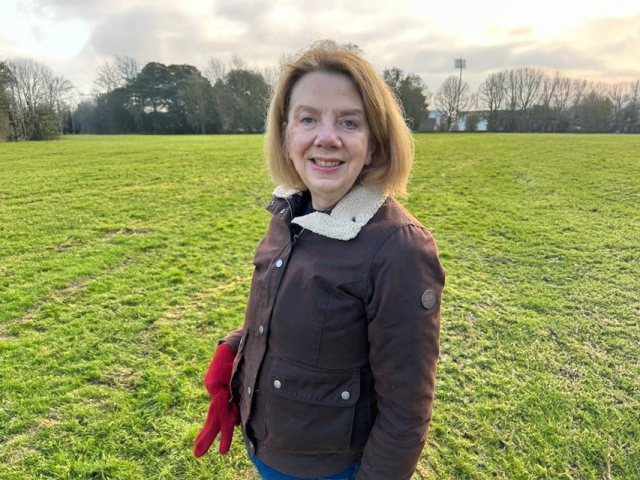
From current affairs to research – volunteering for a Research Ethics Committee
Clare Gabriel is a former BBC journalist, a mother and grandmother, and a member of a Research Ethics Committee (REC), helping ensure health and social care research is safe, fair and ethical.
Clare’s interest in research started when her eldest daughter became very ill and was hospitalised with type 1 diabetes aged ten.
As a parent, Clare knew then research was vital to improving her daughter's life with diabetes and she has seen first-hand over the years the benefits of research and how life-changing it can be.
Two years ago, Clare saw a post on social media looking for people to volunteer as REC members, who protect the rights, safety, dignity and wellbeing of research participants, and thought it sounded interesting.
As someone without a science or medical background, Clare was a bit concerned at first about the application process and whether she would even be able to do the role, she said:
“I was daunted, I’m a journalist with no medical background, I haven’t even got a science GCSE. I was a bit apprehensive when I got the application form, I had to look at some ethical issues of a study as part of it."
But when I started, I thought, well this is stuff I know about, this is common sense, this is nothing that is too difficult for me, it’s not tricky. I just applied the good sense and knowledge I have from my experience in life and thought I can do this.”
She quickly realised she didn’t need a medical or science background to be a REC member, she just needed to be able to bring her life experiences and common sense and have the time to volunteer.
As a REC member Clare commits to attending at least six half day meetings a year via Zoom, where she and other members discuss research applications and provide feedback to researchers on their studies.
Clare enjoys her experience as a REC member. She is now the chairperson for her committee and mentors' newer members. She said:
I’ve got so much from being part of a REC, I have increased my knowledge a thousand times about what goes on around research in the UK, things I would never have dreamt I would know about."
“I’ve also made lots of new friends from being on the REC, friends I would go out for coffee or lunch with, which is something I didn’t expect but is really nice."
“I’ve also gained a lot of personal satisfaction from being part of a REC, I really get a buzz from knowing that I am helping science go forward, that I am helping future generations.”
Clare feels that one of the main reasons why the UK is such a world leader in research is due to the diverse communities in the UK and that this needs to be reflected in the people who volunteer for REC committees. Clare said:
“It’s very important that we have people from all the different cultures and groups of people that are in UK society to come forward and be on an ethics committee. They can provide their viewpoint on aspects of patient care and safeguarding, because we can’t just have one point of view when it comes to ethics. Ethics is for the general good, so we need everybody, and everybody has something to give to a committee.”
Health and Care Research Wales’ REC committees are always looking for new members from all backgrounds and walks of life. If you would like to find out more about volunteering, you can contact our REC team who will be happy to help you find out more about what they do and how you can apply to join one.
As a member of a REC committee, you will be provided with support and guidance and have the opportunity to make a difference to the research that happens across Wales and the UK.